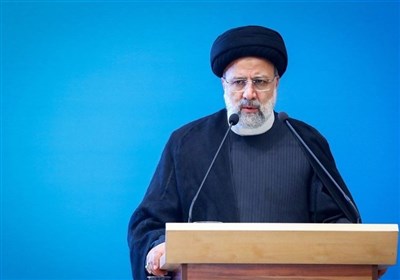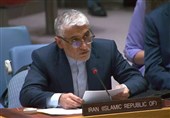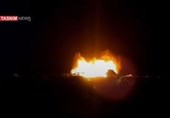Iraq Digs Security Trench around Fallujah
TEHRAN (Tasnim) – The Iraqi military will use a medieval tactic to keep control of Fallujah after recapturing it from Daesh last month: It is digging a trench around the city.
The trench will have a single opening for residents to move in and out of the city, which is virtually empty since the offensive that defeated the Daesh (ISIL) terrorists, said Lt. Gen. Abdul-Wahab al-Saadi, deputy commander of the counterterrorism forces that led the successful campaign.
It will be about 7 miles (11 kilometers) long and "will protect the city's residents, who have lived through many tragedies, as well as security forces deployed there," al-Saadi said in an interview with The Associated Press at his Baghdad headquarters.
Cutting off all roads but one will allow authorities to monitor the movements of residents more closely. Fallujah has been a source of car bombs used against Baghdad, which is 40 miles (65 kilometers) to the east. Restricting traffic will be one way to try to stop any explosives-laden vehicles from leaving the city.
Besides the trench, more modern security measures also will be used.
Personal details of the estimated 85,000 residents who fled during the May-June battle to liberate the city will be stored electronically, and forgery-proof ID cards will be issued, according to Mayor Issa al-Issawi. Cars owned by residents also will be issued display badges containing electronic chips.
The trenches will be about 40 feet (12.5 meters) wide and 5 feet (1.5 meters) deep.
Work has begun on the first leg, running about 4 miles (6 kilometers) on the north and northwest side of the city, al-Issawi told the AP. Digging the second leg, which runs 3 miles (5 kilometers) along the south and southeast, will begin soon, he said.
The western edge of Fallujah abuts the Euphrates River, providing a natural barrier. On the east side is the heavily patrolled main highway to Baghdad, which will be the sole entrance to Fallujah.
The two trenches run through open desert areas used in the past by militants, said Maj. Gen. Saad Harbiyah, in charge of military operations in western Baghdad.
Iraqis have used various earthworks, walls and fortifications ever since the US-led invasion that toppled Saddam Hussein in 2003. During the war, Saddam had trenches dug around Baghdad, filled them with oil and set them ablaze, using thick, black smoke to obscure the view for US warplanes.
Since the war, Baghdad has become a city of concrete blast walls, erected to protect buildings but also to control the movement of people.
In January 2014, Fallujah became the first major Iraqi city to be captured by Daesh. The terrorists later swept through much of Anbar province, taking its capital, Ramadi, and much of the north, including Iraq's second-largest city of Mosul.
Fallujah residents have suffered under more than two years of rule by Daesh Terrorists. That suffering could be exacerbated if the security measures are seen by residents as too heavy-handed.
The Iraqi government also plans to dig a trench along the border between Anbar province, where Fallujah is located, and neighboring Karbala, home to one of Islam's holiest shrines. Work also has begun on walls and trenches around vulnerable parts of Baghdad's outer areas to guard against car bombs. In both cases, however, work has been slowed by lack of funds and corruption.






